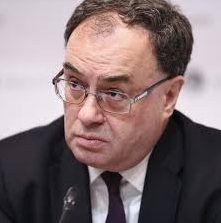
Andrew Bailey signals the end of the rate hike cycle but hints at possible further increases
Bank of England Governor Andrew Bailey has suggested that interest rates are nearing their peak, though he indicated they might still increase further in the near future.
Addressing MPs, Bailey stated, “We are much closer now to the top of the cycle” of interest rate hikes. The Bank has implemented 14 consecutive rate increases in an effort to curb inflation, which remains the fastest among major global economies.
It is anticipated that borrowing costs will rise again later this month, with the Bank rate expected to reach 5.5%. The rationale behind raising rates is to make borrowing more expensive, which discourages spending, reduces demand, and ultimately slows inflation—the rate at which prices increase.
However, despite the Bank rate being at its highest point in 15 years, inflation has been persistently high. While inflation dropped to 6.8% in the year to July, down from 7.9% in June, it is still far from the government’s target of 2%.
During a discussion with the Treasury Select Committee, Bailey acknowledged signs that inflation might be slowing, although it remains uncertain to what extent this will affect wage growth, which has recently reached record levels. Since wage growth can contribute to inflation, this remains a key concern for the Bank.
“Many of the indicators are now behaving as expected, signalling that inflation will continue to decline, and I believe it will be quite a noticeable decrease by the year’s end,” Bailey commented. He continued, “The critical question is whether inflation expectations will continue to drop as headline inflation falls, and whether that shift will be reflected in wage negotiations.”
Meanwhile, despite the cooling economic activity due to higher borrowing costs, wages have continued to rise at a rapid pace, drawing attention from the Bank.
Bailey’s statements suggest that the upcoming rate hikes may be smaller than the market anticipated, though he reiterated that the Bank’s decision-making, scheduled for 21 September, will rely on the latest data regarding jobs, growth, wages, and inflation.
He also reaffirmed that interest rates could remain elevated for some time, a sentiment he had expressed previously.
The rise in interest rates has already affected more than half of mortgage holders, with many more set to feel the squeeze as their fixed-rate deals come to an end in the coming months. These borrowers could face significant increases in their monthly repayments.

















